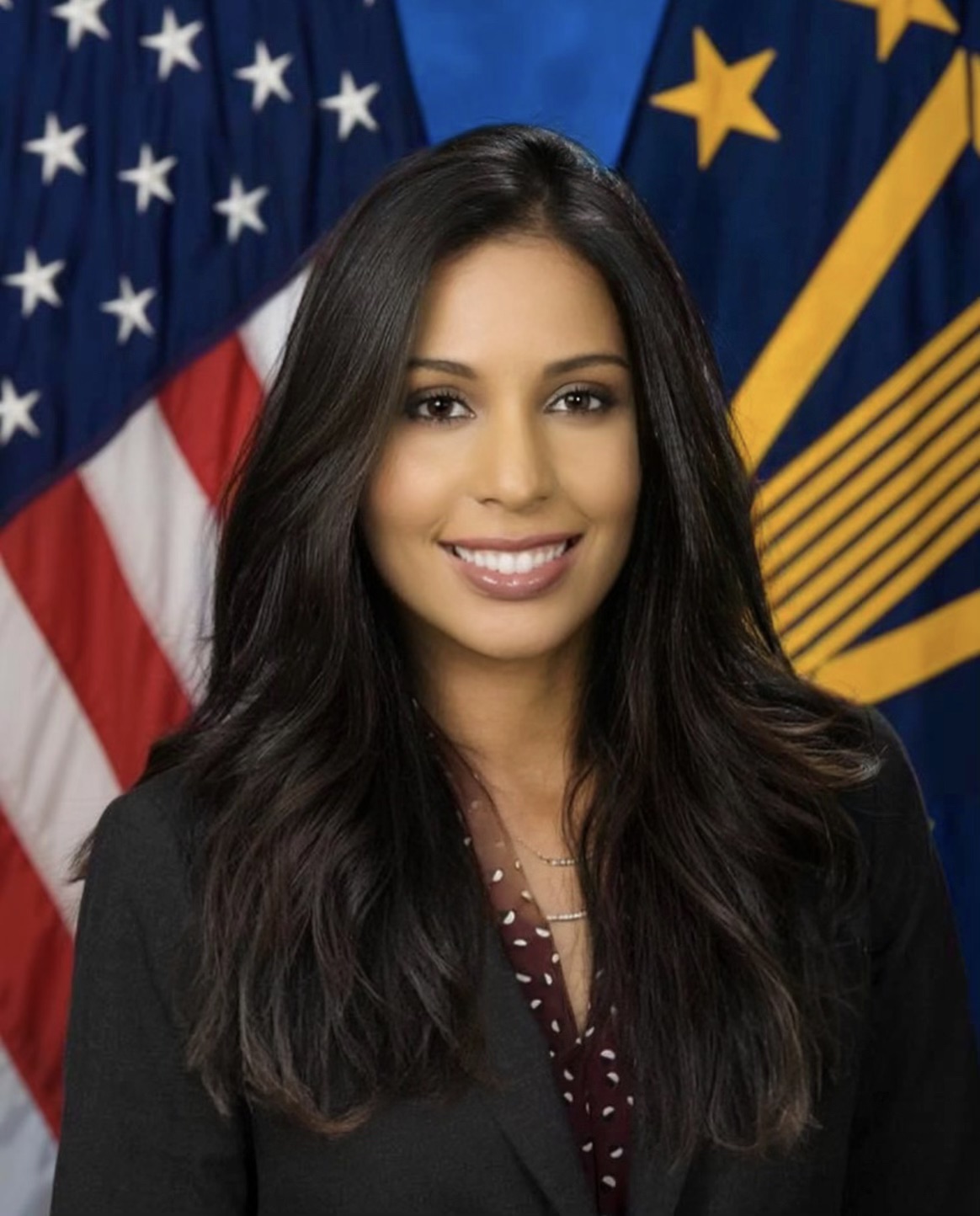Attention A T users. To access the menus on this page please perform the following steps.
1. Please switch auto forms mode to off.
2. Hit enter to expand a main menu option (Health, Benefits, etc).
3. To enter and activate the submenu links, hit the down arrow.
You will now be able to tab or arrow up or down through the submenu options to access/activate the submenu links.
Locator
Contact
Search
VA »
VA Homeless Programs
»
Message from Monica Diaz, Executive Director, VHA Homeless Programs Office
VA Homeless Programs
Message from Monica Diaz, Executive Director, VHA Homeless Programs Office
November 2023

Practicing intentional gratitude and appreciation is always important, but this time of year really brings those reflections into sharper focus.
Every person deserves a safe and affordable home. Without it, every other aspect of their life suffers — their health, employment, and overall well-being.
I’m grateful for the team we have working to end Veteran homelessness and improve the lives of those who have served. And I’m truly appreciative of our collective efforts to help our Veterans find housing and stay housed — today and every single day of the year.
State of Women Veteran Homelessness
This past month, we looked at the State of Women Veteran homelessness by sharing a few stories from women who have served and how homelessness affected their lives.
Over the years, we’ve spotlighted Veterans Kimberly Carrillo, Natasha McCoy, and Alex Dobson, and they illustrated just how homelessness can impact the lives of female Veterans.
Thankfully, these women are among the over 1 million Veterans and their family members whom VA has connected with permanent housing or with services that prevented them from falling into homelessness since 2010. This includes more than 25,000 female Veterans served in fiscal 2023 through VA’s Homeless Programs.
But we recognize that VA needs to accelerate efforts to provide housing solutions, health care, and community employment services to address some of the unique challenges faced by nearly 2 million female Veterans — the fastest growing segment of the Veteran population — and their families.
Reducing and preventing homelessness among female Veterans begins by recognizing some of the contributing factors unique to this population. This includes trauma, military sexual assault, intimate partner violence, poverty, and single parenthood.
Female Veterans not yet connected to VA should know that they matter and deserve a safe place to call home. We know that homelessness doesn’t always look the same for men and women, and so the solutions need to adapt to those differences.
What is universal in our approach is a focus on Housing First. Evidence shows that this is the most effective way to end Veteran homelessness. Our goal is to help Veterans get or stay housed and connect them to other wraparound supports needed to remain housed — health care, job training, legal and education assistance, and more.
To assist in these efforts, VA has programs for female Veterans with children; free, confidential, specialized care for women survivors of MST and other trauma; gender-specific health care services; community employment services; and much more.
Combatting Misperceptions
Let’s talk about false perceptions and myths when it comes to homelessness. The LA Times recently highlighted an opinion article on drug use and homelessness. It sought to combat some of the stereotypes around this topic, like that substance abuse is one of the leading causes behind the loss of housing. Interestingly, research has debunked this myth — specifically, the California Statewide Study of People Experiencing Homelessness, which consisted of more than 3,200 adults. The study found that “50% of [homeless individuals] have not used any drugs (methamphetamine, cocaine, crack cocaine or nonprescription opioids) in the last six months.”
It's important to spotlight and combat these misperceptions so that the facts can be understood and stakeholders can come together to develop appropriate solutions. The article noted that “by gaining a more accurate picture of drug use among unhoused people, policymakers and community groups can provide better harm-reduction and treatment services, and housing resources to those struggling to get by.”
And that’s exactly what we strive for here at VA, consistently working to understand, build, and improve a system of resources and programs that supports our nation’s heroes and continually evolves to meet them where they are at.





























